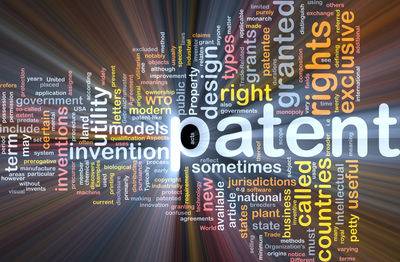The term “reasonable and non-discriminatory licensing” or “RAND” (which may or may not include the “F” for “fair,” depending on one’s whim) was evidently coined long before any group of people came to a mutual decision upon what constituted “reasonable.” At any rate, the debate over what’s reasonable and what’s “F” has now gone full-throttle, with Google’s revelation Wednesday that it perceives prospective partner Motorola Mobility’s (MMI) definition as reasonable enough, and that it’s 2.25% of retail sale price minus subsidies.

That might not sound like much, but if you compound all the essential patents for which a manufacturer may need to obtain a license just to produce an ordinary smartphone, the sum total may become quite a chunk. That’s the argument Apple made to European telecom regulators last November, in a letter revealed only last Tuesday. With Apple and Google now on the record, Microsoft could not afford to be left out of the discussion.
So late Wednesday, it published a brief statement in support of FRAND terms, with the “fair” included, for the licensing of patents that are essential to adopting an industry standard. The general complaint is that companies should not have to be levied unreasonably just so their products can support the standards that consumers dictate they must support.
To Fair or Not To Fair
Microsoft’s statement reads in part, “The international standards system works well because firms that contribute to standards promise to make their essential patents available to others on fair, reasonable and nondiscriminatory terms. Consumers and the entire industry will suffer if, in disregard of this promise, firms seek to block others from shipping products on the basis of such standard essential patents.”
This language has the advantage of appearing to place Microsoft in the same camp with Apple, which raised the issue in the first place, while at the same time adopting terms that could be comprised as not necessarily in opposition to Google.
Apple’s letter to ETSI Director-General Luis Jorge Romero Saro, dated last November 11, does not single out Google or Motorola by name. Nevertheless, it was clear to most, and it was probably clear to Romero Saro, to whom Apple was referring.
“It is apparent that our industry suffers from a lack of consistent adherence to FRAND principles in the cellular standards arena,” wrote Apple Vice President and Chief Legal Counsel Bruce H. Watrous, Jr. He went on to stipulate the three pillars of what Apple considers fair licensing (again, with the “F”): 1) a royalties rate that takes into account the total amount that manufacturers would end up paying all their licensors in royalties; 2) a common base price, or fair market average, against which this rate would be applied, as opposed to the actual sale price of each item; 3) a commitment never to seek injunctions against anyone entering into a FRAND agreement.
Google’s response to that letter, made to various MMI licensees and then made public, literally promised to make a “binding and unconditional commitment” to continue issuing licenses on RAND terms (without the “F”) on one condition: that the licensee refrain from seeking an injunction against MMI.

The Hidden Hook in the Grant Back
That might have been the end of it, had Microsoft VP and Deputy General Counsel Dave Heiner not written a lengthy blog post explaining the otherwise brief Microsoft official statement.
“Firms benefit from having their ideas included in new standards, and in exchange for this, firms usually make a promise: that if they have any patents they have that are ‘essential’ to implementing a standard, they will make these patents available to all,” Heiner wrote. “This system works really well, almost all of the time.” Taking the first big pick-axe swing at the dam, Heiner added that most of the time, Microsoft does not actually find itself licensing its own patents to others, when those patents apply to standards.
He then alluded to one of the big underlying issues in this whole debate. Again without singling out Google or MMI by name, he stated his company’s position that “patent holders should not seek to block shipments of competing products just because they implement an industry standard – a license on reasonable terms is always available. That also means that such patent holders should not require other firms to license back their patents, except for patents that are essential to the same standard.”
The practice here is something called a grant back, and it’s rooted in the notion that a licensor will always be granting licenses to its own competitors. Each competitor will always seek to improve the technology it’s being allowed to use, because that’s all part of obtaining a competitive advantage. The right to improve is something the open source community has already worked out in great detail. A grant-back clause, however, would effectively license any improvements back to the licensor, and bar the licensee from seeking an injunction on the use of those improvements.
It’s what some legal sources have called “open source, except closed.”
Google’s letter to MMI licensees explicitly allows for grant back clauses, saying that Google’s final offer of RAND terms “may include a reciprocal grant back license for Google’s products to the licensee’s Essential Patent Claims for the same standards, also on RAND terms.”
The typical weapon of retaliation against someone who improves upon a standard, in either direction, is a motion for injunctive relief. That’s something which Apple stands firmly against, and Heiner’s blog post puts Microsoft in Apple’s camp for this reason. “Seeking an injunction,” Apple’s Watrous wrote, “would be a violation of the party’s commitment to FRAND licensing.”

















